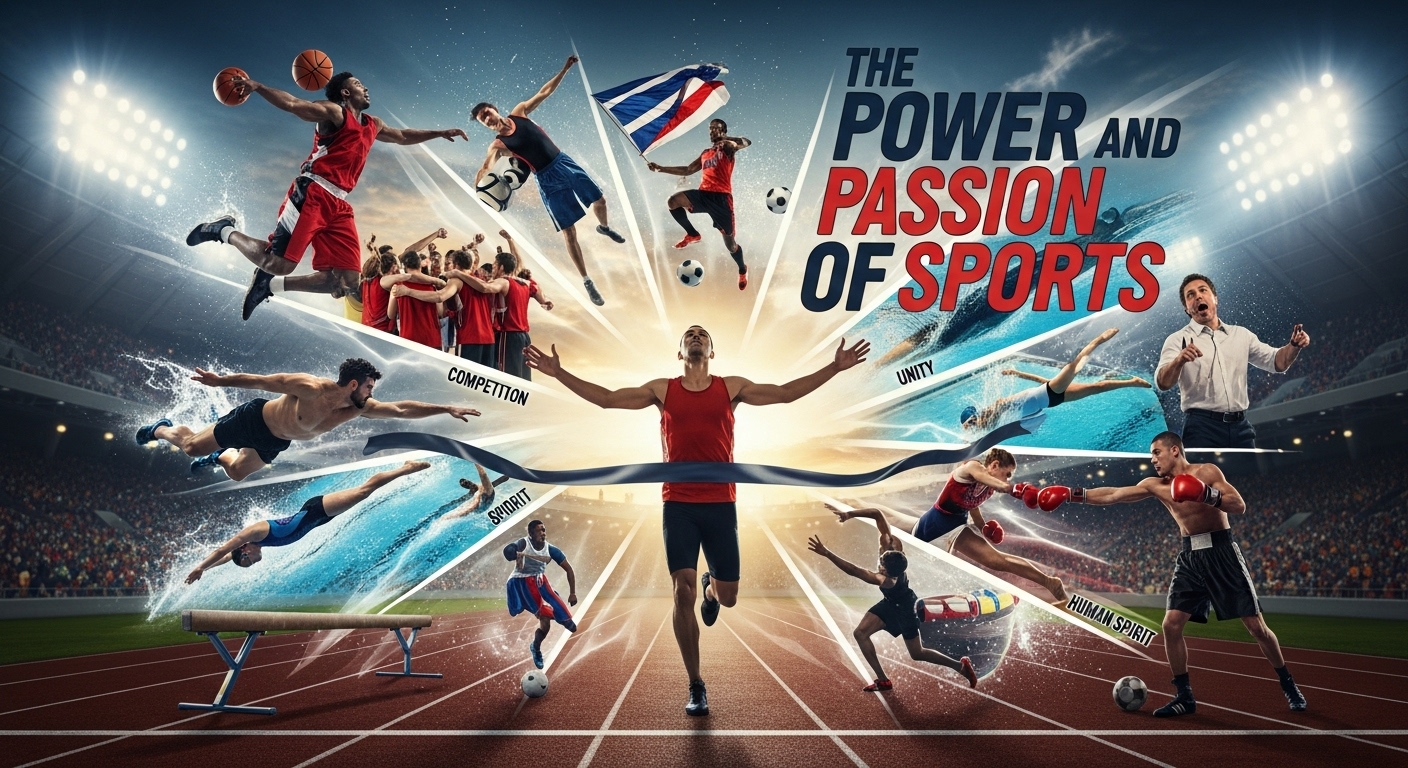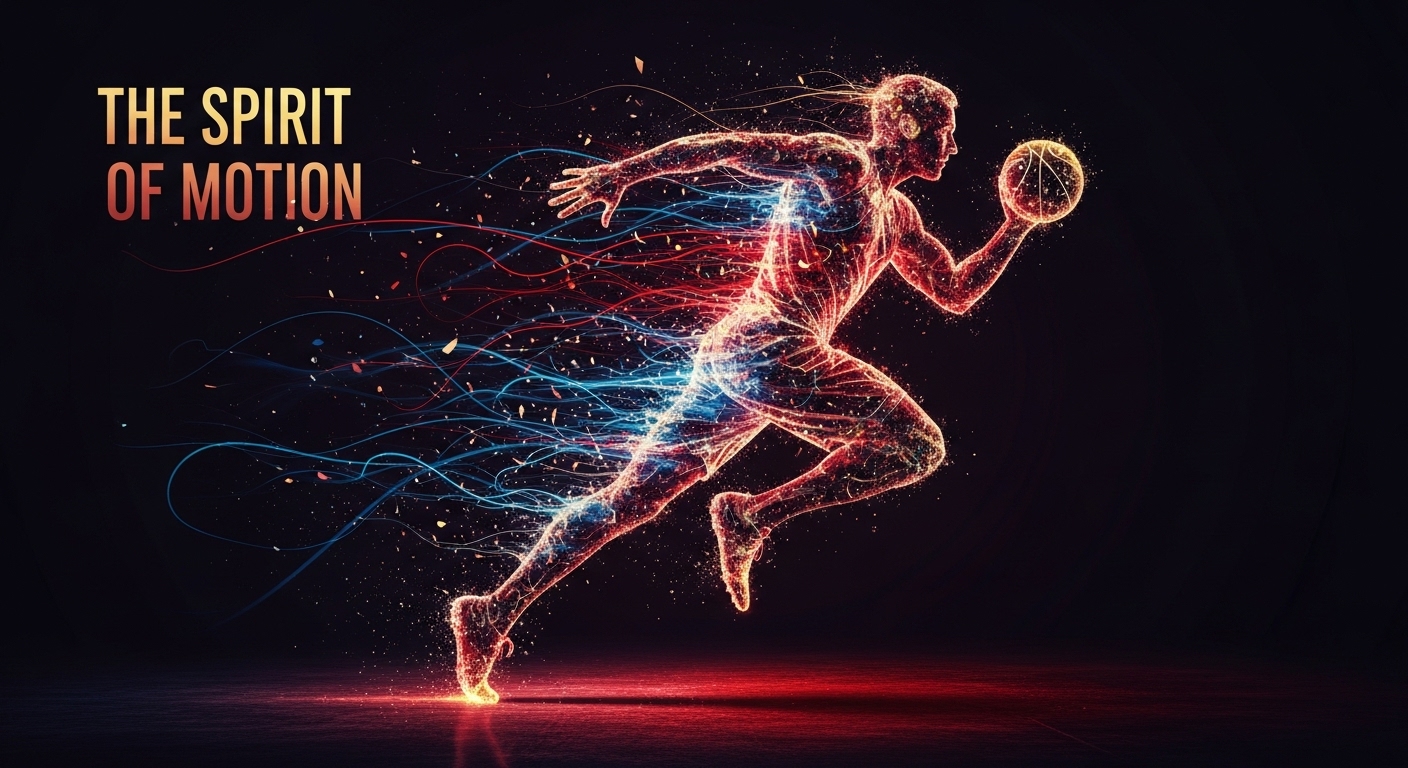Sports have been an integral part of human civilization since ancient times. From the gladiator arenas of Rome to the massive stadiums of today, sports have reflected the strength, endurance, creativity, and unity of humanity. They have evolved into a universal language that transcends race, nationality, and culture. Sports are not just physical activities; they are a reflection of our emotions, ambitions, and collective identity. Whether played professionally or recreationally, sports have the power to inspire, heal, and connect people from every corner of the world.
The Origins of Sports and Their Cultural Significance
The story of sports begins thousands of years ago. Early humans engaged in hunting, running, and combat as a means of survival, and gradually these activities evolved into organized competitions. Ancient civilizations such as Egypt, Greece, and China had their own forms of games that combined physical skill and mental strategy. The Olympic Games of ancient Greece, for example, were not merely athletic contests but religious and cultural festivals celebrating human potential.
In ancient China, archery and martial arts were key components of training for warriors and scholars, symbolizing balance and discipline. In Mesoamerica, the Mayans and Aztecs played ball games that carried deep spiritual meanings, often linked to their gods and cosmic beliefs. Across Africa, traditional wrestling and running were both sport and ceremony, bringing tribes together in celebration and challenge. Sports have always been woven into the fabric of cultural identity, expressing the values and beliefs of a society.
The Evolution of Modern Sports
As societies modernized, so did sports. The 19th and 20th centuries marked the birth of organized sports as we know them today. Britain played a key role in shaping many modern sports, such as soccer, cricket, rugby, and tennis. These sports spread across the world through colonization and global trade, becoming an essential part of local cultures.
The establishment of governing bodies like the International Olympic Committee and the Fédération Internationale de Football Association (FIFA) helped formalize rules and global competitions. The revival of the modern Olympic Games in 1896 symbolized a new era of unity and peaceful competition among nations. Over time, sports became not only a source of entertainment but also a massive global industry, influencing economies, media, and even politics.
The Role of Sports in Society
Sports play an important role in shaping communities and individuals. They teach discipline, teamwork, and resilience. For children, participation in sports helps build confidence and develop social skills. For adults, sports serve as a form of recreation and stress relief. For nations, sports act as a symbol of pride and unity.
When a country wins an international event, it’s not just about the athletes—it’s about the collective joy and identity of an entire population. Victories in the World Cup or the Olympics often inspire patriotism and togetherness. In times of crisis, sports can offer hope and a sense of normalcy. After natural disasters or political turmoil, sporting events often serve as platforms for healing and solidarity.
The Physical and Mental Benefits of Sports
Engaging in sports brings a multitude of health benefits. Physically, sports improve cardiovascular health, strengthen muscles, and enhance flexibility. They help regulate body weight and reduce the risk of chronic diseases such as diabetes, hypertension, and obesity. The movement, endurance, and coordination required in sports promote overall physical wellness.
Mentally, sports are equally beneficial. They boost self-esteem, reduce anxiety, and improve concentration. The release of endorphins during physical activity acts as a natural stress reliever, enhancing mood and emotional stability. Team sports, in particular, encourage communication and empathy, fostering strong interpersonal bonds and emotional intelligence.
The Business and Economics of Sports
Sports today are not only a passion but also a powerful economic engine. Major sporting events like the FIFA World Cup, the Olympics, and the Super Bowl generate billions of dollars through ticket sales, broadcasting rights, sponsorships, and merchandising. Sports franchises are among the most valuable entities in the business world.
Athletes themselves have become global brands, endorsing products and influencing trends beyond their fields. The relationship between sports and media has created an entire ecosystem of careers and industries—from journalism and marketing to event management and sports analytics. Cities and countries invest heavily in sports infrastructure, recognizing the potential for tourism, employment, and global recognition.
Technology’s Impact on Sports
Technology has revolutionized every aspect of sports, from training methods to fan engagement. Modern athletes rely on data analysis, wearable devices, and virtual simulations to improve performance. Coaches use video analysis to study opponents and develop strategies. Referees benefit from technologies such as goal-line sensors and video assistant referee (VAR) systems, which enhance fairness and accuracy.
Fans, too, have been transformed by technology. With the rise of digital media, social platforms, and streaming services, sports are now more accessible than ever before. Fans can follow their favorite teams and athletes in real time, creating global communities that transcend borders. E-sports, the competitive playing of video games, has emerged as a new dimension of sport, blending technology and competition in unprecedented ways.
Gender and Equality in Sports
For much of history, sports were dominated by men. Women faced societal and institutional barriers that limited their participation. However, the 20th century brought a wave of change. Female athletes began breaking barriers, proving their talent and resilience in every arena. Icons such as Serena Williams, Mia Hamm, and Simone Biles have shown that excellence knows no gender.
The inclusion of women’s events in global tournaments has been a major step toward equality, though challenges remain. Pay disparities, unequal media coverage, and cultural stereotypes continue to hinder progress. Nevertheless, the rise of women’s sports is one of the most inspiring stories in modern athletics, showing that the pursuit of greatness transcends gender.
The Spirit of Competition and Sportsmanship
At its core, sport is about competition—but not only in the sense of winning. True sportsmanship is about respect, fairness, and integrity. The greatest athletes are often remembered not only for their victories but for their character. Moments when competitors help each other, even at personal cost, capture the true essence of humanity.
Whether it’s shaking hands after a hard-fought match or applauding an opponent’s success, sportsmanship reminds us that competition should unite, not divide. The spirit of the game lies in pushing boundaries while maintaining respect for others and the rules.
The Role of Fans and Community
Fans are the heartbeat of sports. Their energy, loyalty, and enthusiasm breathe life into every game. Stadiums filled with cheering crowds create an electric atmosphere that motivates players and enhances the spectacle. Supporters form communities that extend beyond the playing field, bonding over shared passions and traditions.
In many countries, sports fandom is part of cultural identity. Local clubs and national teams become symbols of pride and belonging. Fans celebrate together in victory and find comfort together in defeat. The emotional connection between players and fans is one of the most powerful relationships in human culture.
Challenges in Modern Sports
Despite its many positives, modern sports face several challenges. Doping, corruption, and unethical behavior have occasionally tarnished the purity of competition. The pressure to succeed can lead athletes to make dangerous choices, both physically and mentally.
Additionally, commercialization sometimes overshadows the spirit of the game. When profit becomes more important than passion, the essence of sports risks being lost. Issues such as match-fixing, biased officiating, and exploitation of young athletes continue to raise ethical concerns. Addressing these challenges requires strong governance, transparency, and education at every level of sport.
Sports and Global Unity
Few things unite the world like sports. During major international tournaments, borders seem to fade, and people come together in celebration. The Olympics, for example, showcase the world’s diversity while emphasizing shared humanity. When athletes from conflicting nations compete peacefully on the same field, it sends a message of hope and coexistence.
Sports diplomacy has even been used to ease tensions between countries. Friendly matches and joint training programs can help build trust and cultural exchange. Through sports, the world is reminded that cooperation and respect can triumph over division.
The Role of Youth in the Future of Sports
The future of sports lies in the hands of the younger generation. Youth development programs, grassroots leagues, and school sports are essential for nurturing talent and promoting healthy lifestyles. Encouraging young people to participate in sports builds not only better athletes but also better citizens.
Sports teach lessons that last a lifetime: the value of hard work, the importance of teamwork, and the courage to face failure. In an age where technology and sedentary lifestyles dominate, promoting sports among youth is more important than ever.
Environmental Sustainability in Sports
In recent years, the sports world has become increasingly aware of its environmental impact. Massive events generate significant waste, carbon emissions, and energy consumption. However, many organizations are now leading sustainability initiatives, from building eco-friendly stadiums to encouraging recycling and renewable energy.
Athletes and fans alike are becoming advocates for climate action. The combination of sports and environmental awareness can inspire global change, reminding everyone that protecting the planet is the ultimate team effort.
The Emotional Connection Between Sports and Life
Sports mirror life in countless ways. They teach resilience in defeat, humility in victory, and persistence through struggle. Every match, race, or competition carries lessons about determination, preparation, and courage. Athletes often become metaphors for human strength and perseverance, inspiring millions to chase their own dreams.
Moments of triumph—like a last-minute goal, a record-breaking sprint, or a comeback victory—remind us of what is possible when effort meets belief. Sports remind us that success is never guaranteed, but the journey itself holds immense value.
The Digital Future of Sports
As we move deeper into the digital age, the relationship between sports and technology will continue to evolve. Artificial intelligence, virtual reality, and augmented experiences will reshape how we play, train, and watch sports. Fans might soon experience matches through immersive virtual environments, and athletes will rely even more on data-driven insights to enhance performance.
E-sports will continue to grow, bridging entertainment and competition for new generations. The boundary between physical and digital sports may blur, creating hybrid experiences that redefine what it means to compete.
Conclusion: Sports as a Reflection of Humanity
Sports are more than games. They are a living expression of human spirit, ambition, and unity. They celebrate the body’s power, the mind’s strategy, and the soul’s perseverance. From ancient rituals to modern championships, sports have chronicled the evolution of civilization itself.
They remind us that while we may speak different languages, hold different beliefs, and live in different lands, we share the same heartbeat when our team scores, when an underdog wins, or when a champion breaks a record. Sports are not just part of our lives—they are a reflection of who we are as people.
In every cheer, every victory, and every defeat lies a story of courage, connection, and the timeless pursuit of greatness. Sports, in all their forms, will continue to unite the world, inspire generations, and symbolize the best of humanity for centuries to come.



